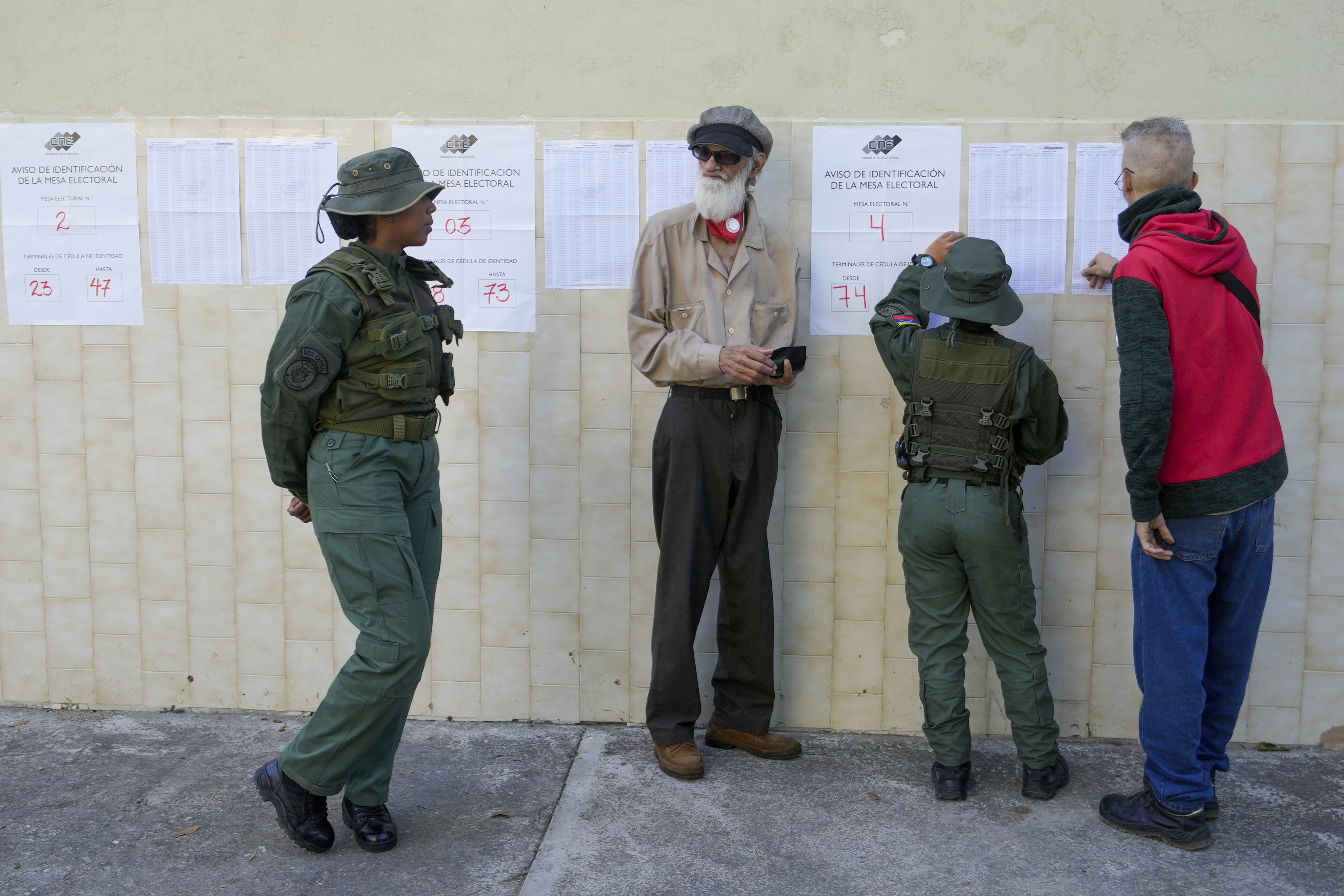Polls have opened in Venezuela, where 17 million voters must choose between handing the increasingly authoritarian Nicolás Maduro a third presidential term or throwing their support behind an unknown newcomer promising to end 25 years of single-party rule.
Retired diplomat Edmundo González is the only opponent on the ballot who represents a real threat to Maduro's hold on power.
The opposition boycotted the 2018 presidential election, allowing Maduro to coast to victory at a time of hyperinflation and widespread shortages. Although electoral conditions have barely improved, it is competing this time because it believes widespread anger with Maduro's mismanagement of the economy will ensure his defeat. The last time it went to polls as a unified front, in the 2015 parliamentary elections, it trounced the ruling socialist party.
In the working class Petare neighborhood on the east side of Caracas, people lined up to vote hours before polls opened.
Judith Cantilla, a 52-year-old domestic worker said, "In the name of God, everything is going to turn out alright. Each person is going take their position and well, (it's time for) change for Venezuela."
She said the people were tired and that change for Venezuela is for more jobs, security, medicine in hospitals and better pay for teachers and doctors.
Elsewhere, Liana Ibarra, a manicurist in greater Caracas, got in line at 3 a.m. Sunday and found at least 150 people ahead of her.
The 35-year-old Ibarra said her aunt wrote to her from the U.S. at 2 a.m. to she if she was already in line.
With her backpack next to her loaded with water, coffee and cassava snacks, Ibarra said there used to be a lot of indifference toward elections, "but not anymore."
Her mom's 11 siblings have all migrated. She has not followed them, she said, because her 5-year-old son has special needs. But if González does not win, she will ask her relatives to sponsor her and her son's application to migrate to the U.S. legally.
"We can't take it anymore," she said.
